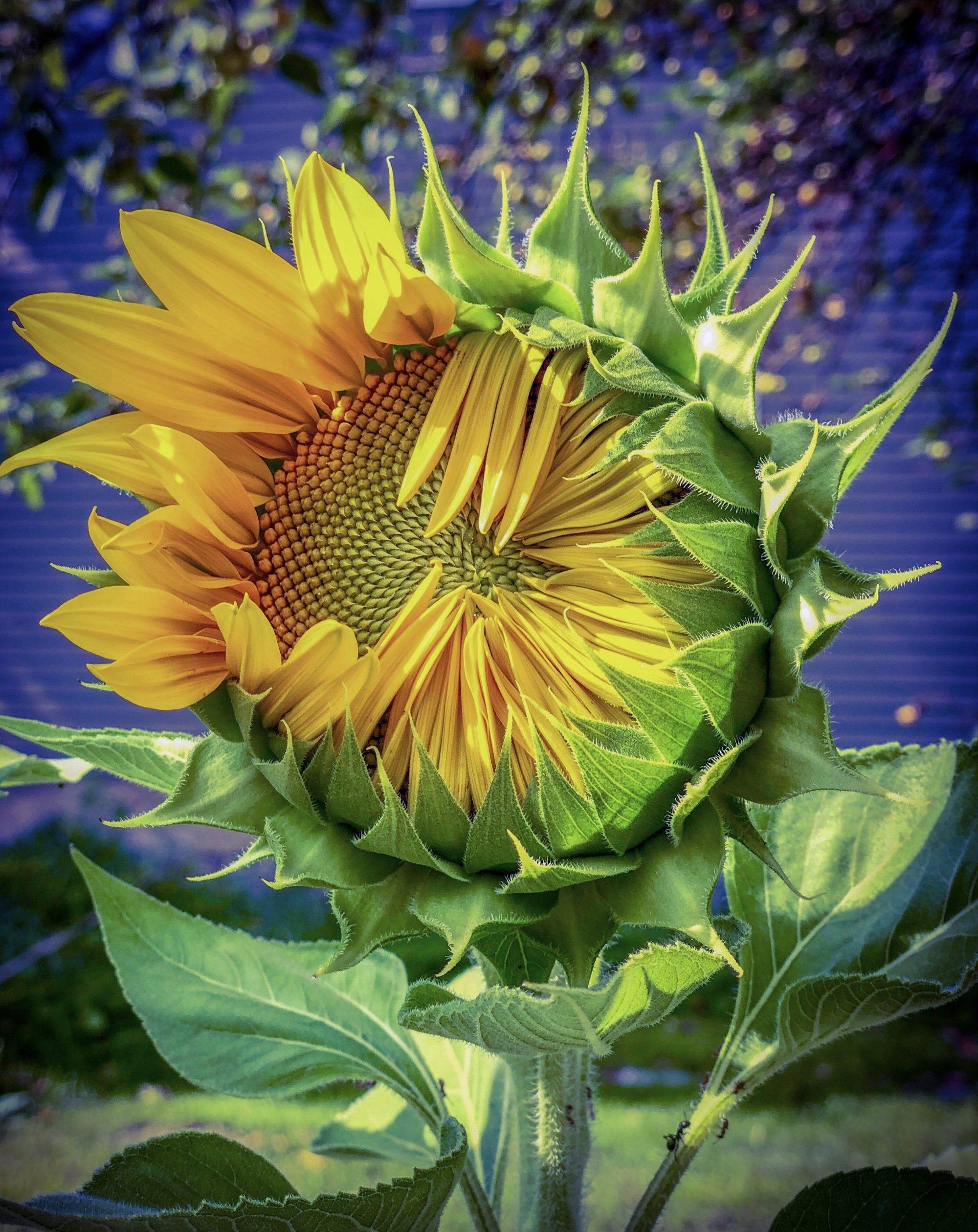One does not have a life. One is life.
The trick is getting out-of-the-way. Given our dependence on language, the subject – object divide between self and life is permanent and messy. When we do language, language does us, and part of that doing is perpetually framing the world in a subject-verb-object construction.
We erroneously place ourselves as creatures who act on the world in meaningful ways, be those actions noble or ignoble, conscious or unconscious; in fact, what we do with most of our precious time is create walls between ourselves and life.
Most of us don’t live; we frame life, shape it, control it in ways to make it better, because we fail to recognize that we are life already. We strive and do to live, while not recognizing that life is who we are.
This is it. Here. Now.
No special requirement to get in.
Life’s “isness” is why meditation frees us — be it a theistic or an a-theistic practice — because the subject-verb-object distinctions lose their hold on our consciousness, however briefly.
In practicing stillness, life emerges again, briefly untangled from language’s myth that we are separate agents needing to do to be in a reality that exists as a constructed object.
We are. We are life, individually and collectively.
And we share life with all life, though we rarely glimpse this breathtaking and beautiful truth.
I reread Anne Dillard’s “The Writing Life” this morning, an exquisite meditation on the practice of writing. Rather, I stumbled on an Anne Dillard quote and felt inspired to return to the book. So “The Writing Life” presented itself again to me.
The happy fortune of circumstance; life unfolding with the dawn.
Dillard describes writing practice as living; not practice as in a verb acted out by a subject so that the subject successfully marks itself on an object, that is, the world. “I will practice writing, and I will be a writer, and a book proves that.” No, that’s not how it works. What I took away from Dillard, she never explicitly stated; interpretation says more about reader than writer.
This morning, this was how I read Dillard on writing: her view of writing practice emerged as the moments when subject and object dissolve, life opens itself, and one is written from life’s depths. The more one practices, the deeper the dive into life. One shows up , and surrenders over and again to its unknown ocean; then is one written.
Note that the WordPress proofreader alerts me with a green line that in “is written” I used the verboten passive voice.
Yes. That’s right, the passive voice. She who is written; the one open to being written.
A mere 113 pages, Dillard’s crown jewel sits near Chapter Five’s end, and it shines gloriously:
“One of the things I know about writing is this: spend it all, shoot it, play it, lose it, all, right away, every time. Do not hoard what seems good for a later place in the book or for another book; give it, give it all, give it now. The impulse to save something good for a better place later is the signal to spend it now. Something more will arise for later, something better. These things fill from behind, from beneath, like well water. Similarly, the impulse to keep to yourself what you have learned is not only shameful, it is destructive. Anything you do not give freely and abundantly becomes lost to you. You open your safe and find ashes.”
If spiritual traditions teach us to give all away, it goes back to this truth, that the more one gives, the more one has. We understand giving as “giving away,” but giving isn’t about loss, giving makes space for life’s tireless and resplendent energies. Giving is “giving to.” And giving is more than a tally, where the Divine sits ready to bless us for being oh-so-generous or working oh-so-hard. Giving allows life to flow through us, for we don’t cling to one set of circumstances or realities, because the life choking subject-object distinction beautifully recedes; we’re restless, exploring, alive, creating, while still living in stillness’ center. Carried to life’s mysterious peripheries, we trust everything that comes, then give more away in greater resplendence. Whatever the art, the practice, it’s the dance between stillness and expanding radiance that returns us to life.
If we’re truly fortunate, the giving “I” disappears, becomes erased in living, as life overflows without thought.
In a similar spirit, Maya Angelou wrote, “You can’t use up creativity, the more you use the more you have.” Because the creative well isn’t that lonely subject sitting there writing, hacking out sentence after sentence in a need for accomplishment. The work is always its own reward in the dance, the well bottomless in its desire fill the one willing to be written. The more we give ourselves, the more the stars, the sun, the moon, the earth, and life’s infinity unfold in us and for us, which is life itself.
I am not a writer. I am written. Poem by poem, essay by essay, page by page, chapter by chapter, book by book, until the return beyond subject-verb-object completes itself as many times as possible during my days.
And so it is.
